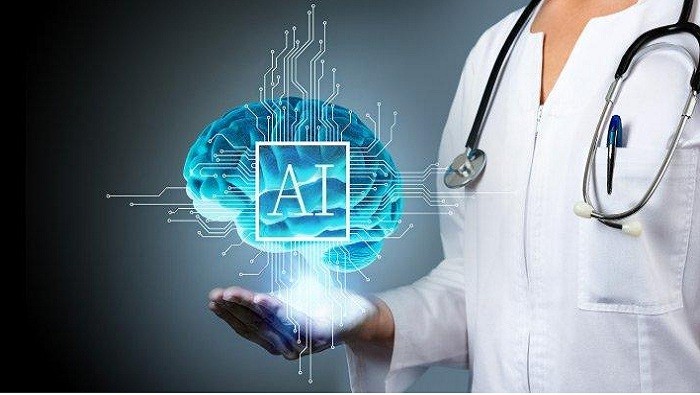How AI Healthcare Solutions Are Transforming Patient Care in 2025?

The digital revolution is transforming the entire business landscape. It redefines how work is done and impacts workflows, outputs, and performances. One sector where digitalization is currently being leveraged to its potential is the healthcare industry. At the forefront is AI in healthcare. According to some reports, 94% of healthcare institutions view Artificial Intelligence as crucial for their operations, and almost 84% of healthcare institutions are currently using AI extensively.
Reports further suggest that AI healthcare solutions are generally used in the following areas: 55% in patient scheduling and waitlist management, 47% in pharmacy services, and 37% in cancer services. In 2025, AI will play an active role in different areas of healthcare settings.
How Can AI Healthcare Solutions Help Unlock New Possibilities in Patient Care?
Accuracy & Speed In Diagnoses
Diagnostics is one of the key areas where AI is making a big difference and will continue to do so. AI algorithms have been trained and are being continuously trained across vast medical databases, making them effective in detecting different kinds of diseases, including severe ones like cancer, neurological disorders, etc.
The interesting part is that these diagnoses are all highly accurate. In radiology, too, AI is contributing in a big way as AI-powered image analysis tools are helping detect abnormalities in X-rays, MRIs, and CT scans much faster than traditional methods. Thus, along with accuracy, AI in healthcare reduces treatment time, significant in life-threatening conditions.
Personalized Treatment Plans
When it comes to treating a patient, doctors are often known to pursue similar treatment instead of viewing every case as different from the other. AI healthcare solutions are enabling this form of personalized treatment. These solutions analyze a patient’s medical history, genetics, lifestyle data, and real-time vitals to recommend tailored treatment options.
This, in turn, improves treatment effectiveness, reducing side effects. For example, AI helps oncologists design chemotherapy plans specific to a patient’s tumor profile.
Enhancing Remote and Preventive Care
There has been a surge in remote patient care and telemedicine in the past few years, especially after Covid-19. AI is one of the technologies that is being used in smart wearables and Internet of Things (IoT) devices for monitoring different health metrics of patients.
Some of the metrics that are commonly measured by these smart devices include blood pressure, glucose levels, and oxygen saturation. By consistently tracking, patients are sent alerts in case of major deviations, prompting timely intervention has become a reality.
Supporting Mental Health and Wellness
Mental health conditions are rising at an alarming rate. Many AI-driven apps and virtual assistants are available to support people suffering from depression, anxiety, and stress. The apps monitor the mood patterns of patients in real time. Their powerful algorithms analyze the speech, behaviors, and reactions of the patient to detect early signs of depression or anxiety.
In 2025, AI healthcare solutions will continue to evolve further in the realm of patient care. Tailored treatment, faster diagnosis, support with mental health, and the use in remote care will only drive better quality of life for the patient, while improving operational efficiency. With personalized treatment plans, the outcomes are expected to improve, and with time, the future of healthcare can be marked by innovation and intelligence – a win-win for all involved.




